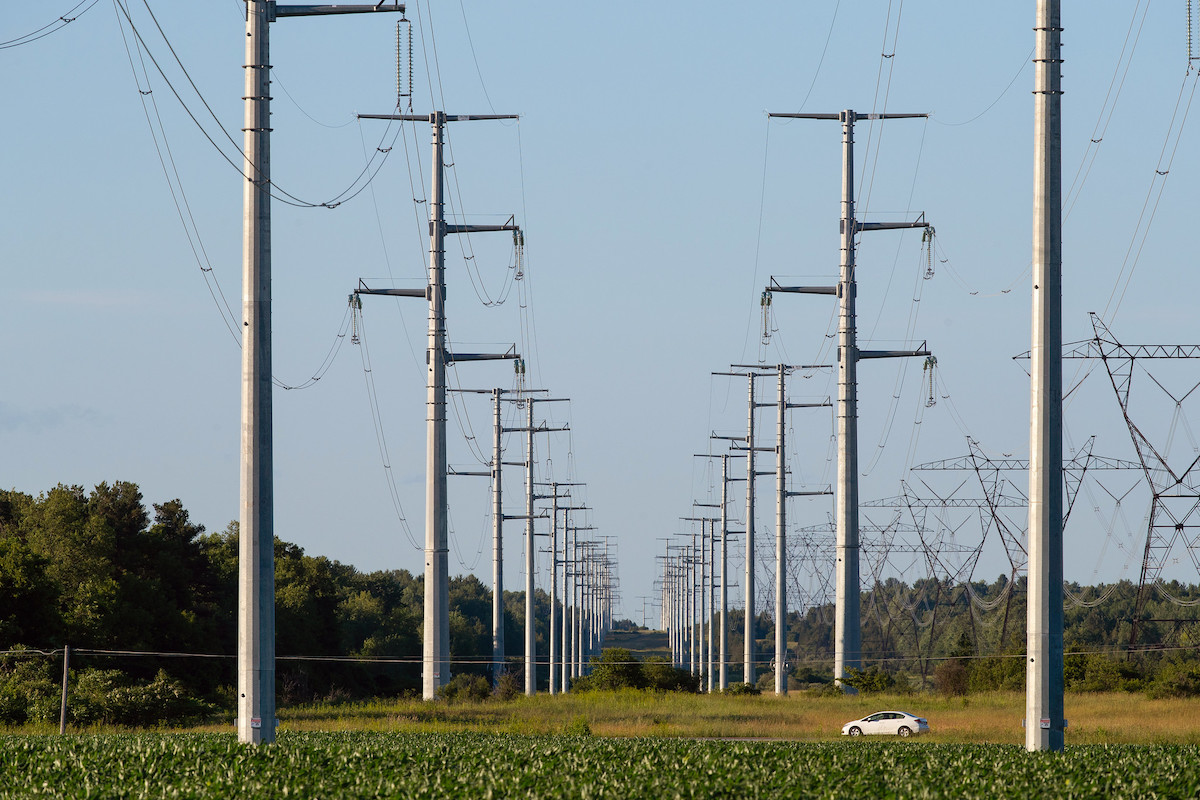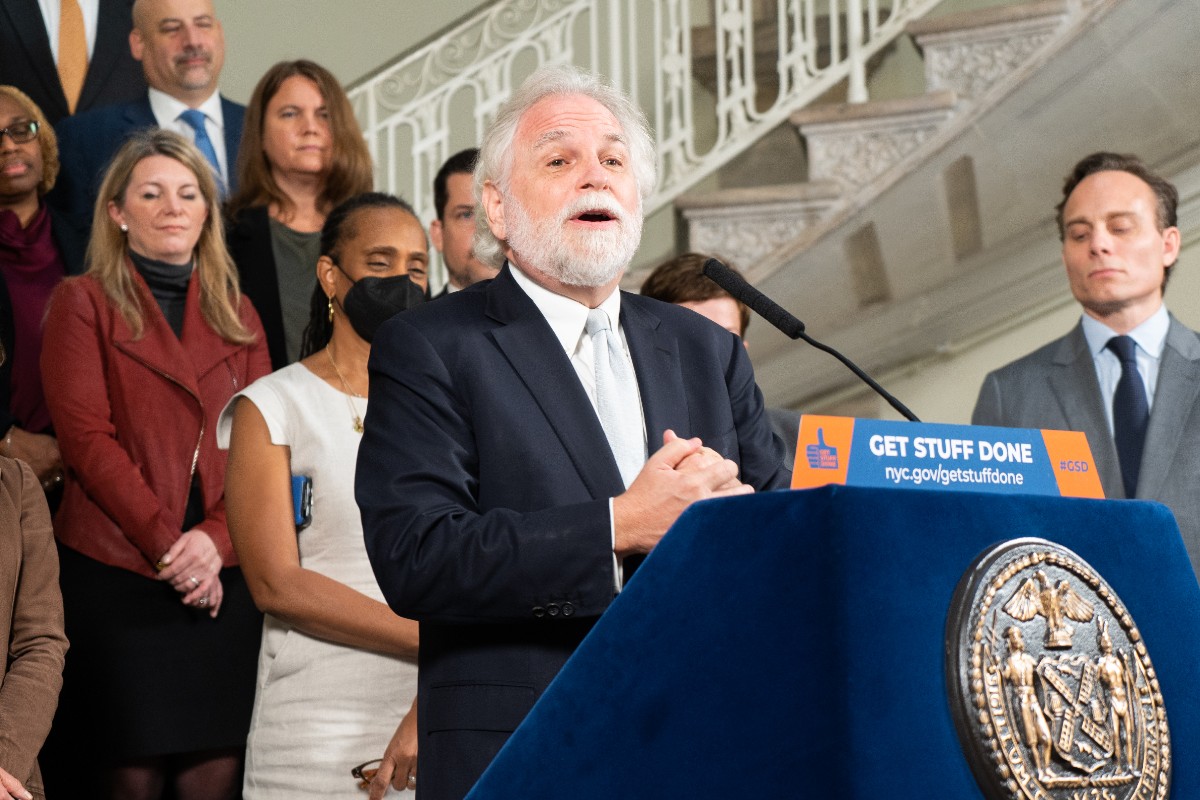James Kings was so deep in conversation with his friend Monday afternoon that he didn't realize at first that the F train they were riding had pulled into Broadway-Lafayette station, where they were planning on catching a D train up to the Bronx.
"A dispatcher got on the line and said the train wouldn't be moving, and I realized that was our stop," Kings said. He and his friend walked up the platform, and came upon a crowd milling around a forward car where Jordan Neely, a 30-year-old homeless man, was being choked on the ground by a man whom news outlets have identified as Daniel Penny, a 24-year-old former Marine.
"The Marine was still choking him when we got up there," Kings said. He asked bystanders what was going on, and they told him: "They said he had gotten on the train and was belligerent about getting his food. He was using the wrong method, he was using aggressive panhandling, he was screaming and hollering about how he needed food."
Kings didn't do anything to intervene. It was already too late, he said. "The man was lifeless. It was obvious the man had been choked out."
Kings's friend, Johnny Grima, approached and splashed some water on Neely's limp body to try to revive him, but, he says, Penny waved him away. Grima says he regrets not intervening earlier. "Unfortunately I didn't do anything to stop it, and I feel ashamed about that," he said. "I was intimidated by Daniel Penny."
Another rider, who did not wish to be identified because discussing the episode is traumatic and they do not wish to be contacted by police or attorneys, was sitting at the end of the car where Neely was killed. As the train passed through the tunnels, they were deep in a text exchange, they said, until they noticed that bodies were shifting around them. They looked up to see Neely and Penny on the ground just five feet from them, Penny's arm around Neely's neck.
"I hadn't heard any commotion up until then," they said. "I got up from my seat and walked towards them, asking people, 'What's going on?' People said, 'This guy was threatening people and throwing trash.' One woman said, 'Oh, he was threatening people on the train.'"
At first, they said, they didn't know which of the two men on the ground people were talking about. "It was confusing," they said. "I think I talked to a few more people and just picked up from context that Jordan was the one people were saying was threatening people, and the Marine was restraining him. The Marine didn't really change his facial expression through all this, he didn't seem stressed. I think I kind of picked up like, 'Okay, he's restraining this guy.'"
By this time, the train had already pulled into the station and stopped, with its doors open, the witness says. People on the train were using the safety phone on the platform to call for police and the train conductor was using the public address system to call for police as well.
"Everyone was just focused on getting the cops there," they said. Two other men were holding down Neely's arms, and the Marine continued his hold around his neck, but no one on the car was moving to intervene.
"This is probably a moment when people would ask, 'Why would someone not see this as an issue?'" the witness said. "It's almost impossible to—I did not assume this guy is going to die. And now he's dead. It's hard to imagine that. But in the moment, it was like, dude has got this guy in a chokehold. You know, it's not going to be forever. He's not like, punching him or beating him up. It just seemed as if he was restraining him physically as much as he could."
At some point, they said, Penny relaxed his grip on Neely, and Neely coughed up a bright red wad of blood and mucus. The witness said they didn't reassess their initial assumption that Penny's hold on Neely was a harmless restraint until it became clear that Neely wasn't breathing.
Penny's calmness even as he was choking Neely was simultaneously eerie and normalizing, the witness said. "It seemed like he knew what he was doing," they said. "And if you know what you're doing, and you're doing it with dozens of witnesses, why would you have an intent to take someone's life? Like, there's safety in a crowd."
"I already regret not intervening, and I'm not sure why I couldn't," they said. "Part of it was shock. Part of it was everyone else on the car being so focused on getting the police there. There just was not a lot of compassion for the person lying on the floor, not breathing."
The witness added, "I didn't feel like the expert on the situation."
But surely there is some set of circumstances where seeing one man choking another into unconsciousness would prompt them to intervene, to try to get him to stop, right? Why not in this case?
"Because it seemed like the other people who were there, who had already grasped what was going on, were like, 'This guy is protecting us,'" they said. "Maybe it's like mob mentality, but the vibe, there was no real disagreement. There was consensus that this was the right thing to do."
"No one on the car was telling the Marine to stop," they said. "That’s why I thought he [Neely] had been physically assaulting someone, because everyone was like, 'Yeah, good chokehold man. Yeah, we need the cops.' Some of the passengers, like me, were in shock. But a lot were like 'Fuck this guy,'" this witness said, referring to Neely. "I was thinking, OK, even if I have different politics than these people, if they’re all reacting this way, maybe there really was something going down. Maybe the guy restraining him is just trying to be helpful."
Now, the witness says, they feel conflicted about the public reaction to the episode, and the way many people are holding the inaction of the other passengers on the train in judgment. "When I see these people posting about it on social media, it's like looking in the mirror, because I would also be," they said. "It's just very strange to be like, kind of dealing with the trauma of it, having survivor's guilt, and then seeing it become just this one-line story."
They wish people weren't so focused on what the people on the train did or didn't do, they said, calling it a "red herring" distracting from the more systemic ways society failed Neely throughout his life. They blamed the police for taking a long time to arrive on the scene, and for taking even longer to make any gesture towards undertaking life-saving measures.
Penny has not been charged in the incident. Friday evening, his lawyers released a statement.
James Kings agrees about the systemic factors that denied Jordan Neely the advantages and protections others enjoy, and he shares the other witness's dismal assessment of the police response. But he also has harsh words for the people on the train car.
"They were desensitized to reality," he said. "You get on the train, you don't say nothing to nobody, you look at your phone. I don't think the people were happy that the guy died, but they were definitely not on the homeless man's side. They were still sitting in their seats. They just witnessed someone getting choked to death and they're not getting off the train. Everybody was contemplating, 'How are we getting to work?'"
Kings says he believed Neely was dead as he was watching him, and he and Grima didn't stick around long after police arrived. "I was telling my man, 'Let's go, there's nothing we can do,'" he said. "We got on our train."
"I used to ride the subways and panhandle myself," he said. "I don’t know. I know he didn’t deserve to die the way he died. I'm trying to forget about it."
(Image: Kris Arnold / Flickr)





